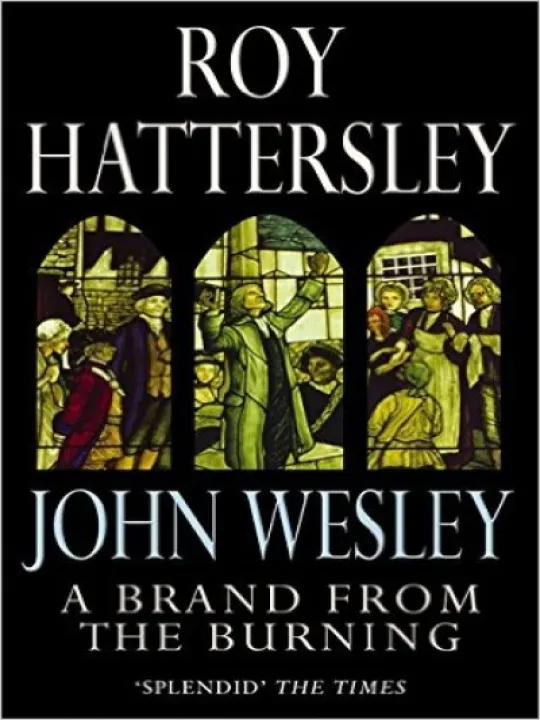John Wesley: A Brand from the Burning
Roy Hattersley's account of John Wesley's life and theology did not make an easy read for most of us, and provoked a lot of questions amongst the members of the Book Club, particularly those who had managed to finish it! But it offered us a chance to learn more about the person whose faith and works have inspired millions of followers.
Because we were seeing Wesley through the eyes of someone who is not a Christian, it was far from being a saintly picture. Wesley's faults were well displayed, though whether Hattersley fully caught the essential message that inspired Wesley's followers is less clear. We all felt that something was lacking in his understanding of people's spiritual needs.
The influence of John's mother Susannah was very evident, and the strength of her own views came through. But while John never shook off her influence, and often sought her opinion, it was felt that Hattersley may have pressed this too far, and she was a much more positive influence than he suggests. The picture given of John was of someone who frequently changed his theological opinions, and often submitted his mother's guidance on this. He was also portrayed as someone who consulted with others before deciding to follow his own opinion – which he then expected everyone else to share. But maybe this development of his theology in the light of experience is something to be admired rather than belittled.
Wesley was undoubtedly an autocratic leader, and no friend of democracy, but he was living at a time when the landed gentry were expected to be the leaders of the nation, and the clergy to be the people who led the Church. It was the failure of leadership by gentry and clergy to care for the outcast that pushed him into working to alleviate the suffering of the poor and to take his preaching to those places where the clergy were failing in their role. It was his aim to bring the Anglican Church back to its original task of preaching salvation and not to establish a separate church. However in this he largely failed, and step by step, he was driven to take decisions that put him more at odds with the Church orthodoxy of his time.
While Hattersley emphasised the importance of Wesley's organisational abilities, he failed to explain much about the detail of this organisation, such as the Class groups which were a key feature of early Methodism.
The theological disputes of the age – Arminianism v Calvinism, Free Will v Antinomianism, Faith v Good Works – and Wesley's own struggles to explain his understanding of Christian Perfection, are well covered in the book. But as these are not the issues that generally concern us today, they are not easy for the average Methodist to relate to.
There was general agreement that Wesley lacked some interpersonal skills, particularly in his relationship with women. However we were not sure what he would think of Methodism today. We lack Wesley's single-mindedness, but would we want to be so focussed on our mission, that we could not lead more comfortable lives than he could ever have done on his horse?
Ken Harris – September 2013
Get In Touch
Aylesbury Methodist Church & Centre
Buckingham Street
Aylesbury
Buckinghamshire
HP20 2NQ


